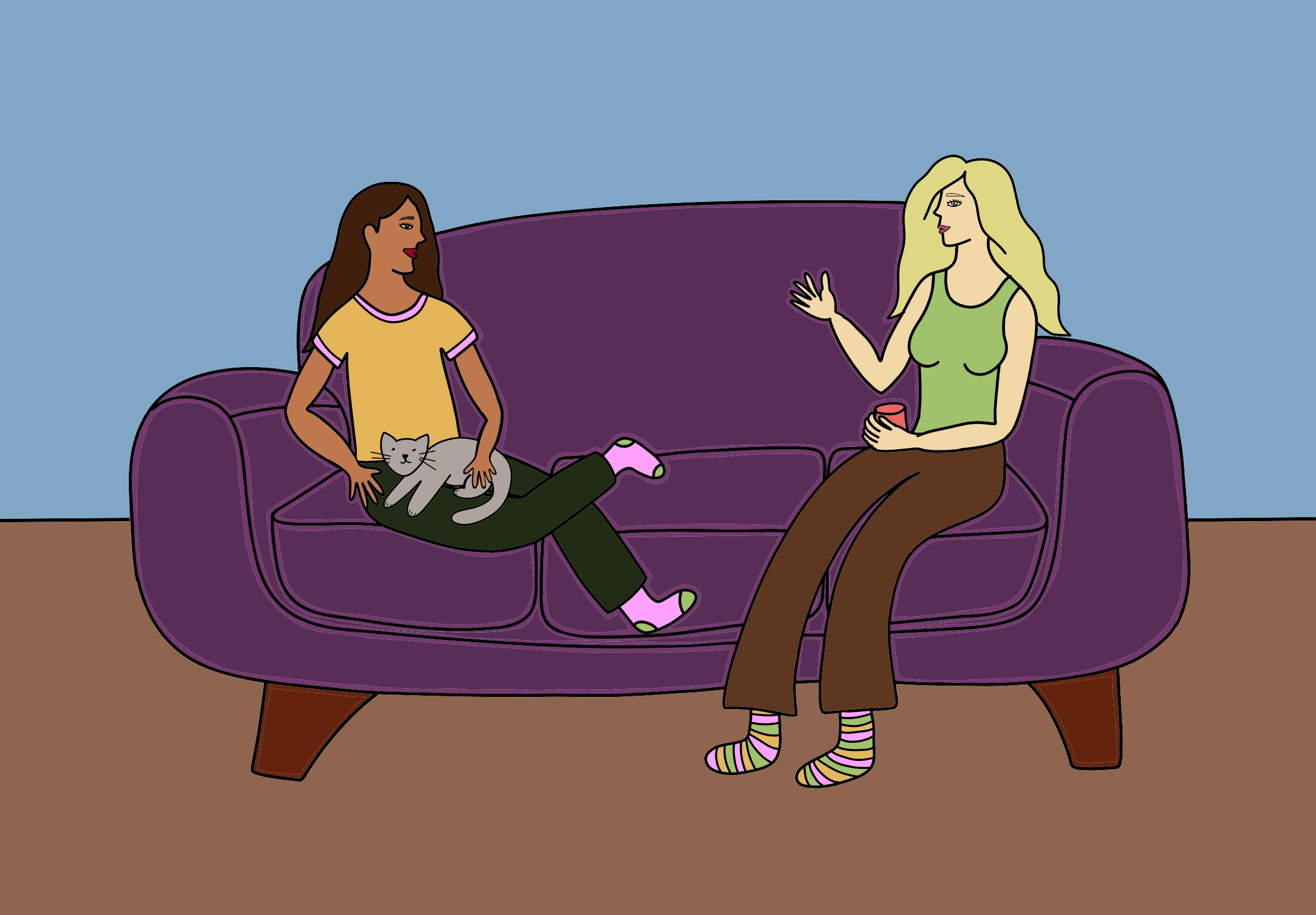From tensions to resentment, a counselling professor explains how best to live with others

Illustration by Sona Eidnani.
It’s that time of year again, where students are forced to tackle exams while grappling with the looming question of where they’re going to be living in the fall.
Roommate relationships are often difficult, especially in times of transition. That’s why the Martlet sat down with Dr. Sarah Nutter, an assistant professor of Counselling Psychology at UVic, to learn more about how to communicate with your roommates.
Nutter says that positive roommate relationships start with selecting the right people to live with. She suggests that first, we should reflect on our own preferences when it comes to living situations. She says that we might consider if we are more social, and enjoy lots of house guests, or if we’re quieter and prefer a calm living space.
“Just because we’re friends with somebody socially, and we might have a really great time with them socially, doesn’t necessarily mean that we would be compatible roommates,” Nutter said. “Everybody has their own personality; their own way of living.”
In situations where you’ve decided that you don’t want to live with a friend, it can be difficult not to hurt their feelings. Nutter says that it’s best to be open and honest with your friend about why you might not want to live together, and to emphasize that you’re not judging the other person.
She also says that it might help to recognize “what you’re preserving by making the choice that you’re making.” If you’re already living with a friend, and you feel that it’s best not to live together anymore, Nutter suggests that you be as honest as possible while considering what you would like to gain from the conversation.
She suggests something like: “This is what I would like from a roommate, and I don’t think I’m a compatible roommate for you, just like you may not be a compatible roommate for me, and we can be different, and that’s okay.”
In order to prevent roommate conflict, Nutter suggests having regular house meetings at a set time and date each month, for roommates to check in with each other. “If there’s not a whole lot to check in about, maybe that’s a quick meeting, and then if there’s something going on, there’s a regular day and time where we know everybody is getting together,” she said.
Nutter says that this allows for a space for the inevitable, more difficult conversations to happen, without being shocking or out of the blue. She also said that it’s important to acknowledge that people might face challenges throughout the school year, and that we can’t expect our roommates to be perfect.
“We’re not going to blame people for struggling,” she said.
Nutter says that the key to a positive conversation with roommates is to listen with the right intentions. “Are we listening to better understand the perspective of somebody else, or are we listening to defend our own position?” she asks. Nutter says that conflict can only be solved in the best way possible if both parties of a conversation are listening in order to understand the other person.
“If one or more people are listening to defend their own position, that’s not really conducive to compromise,” she added.
If these conversations don’t take place, small conflicts can lead to issues in your relationships, says Nutter.
If you feel you’re building to the point that you don’t want to speak to your roommate at all, or you’re avoiding their presence, then Nutter identifies this as the starting point for resentment. She suggests that you remind yourself why it might be important for a conversation to take place, even if you feel that you are pestering or bothering your roommate.
“Everybody is allowed to be who they are and have their own individual differences. It’s how we react to and respond to those differences that can be the key to roommate success,” Nutter says.
If your living situation is changing, whether it be from outside circumstances or because of conflict, Nutter says it’s important to have a support system during stressful housing transitions. She says that these people should come from outside the house, and this might help you with processing the situation, or seeing it from a different perspective.
If the situation with your roommates becomes overwhelming, Nutter also says that it can be helpful to engage in emotional regulation strategies, such as choosing to pause a heated conversation. She says it can be beneficial to listen to music, go for a walk, or take deep breaths.
If you’re curious to learn more about group dynamics, Nutter teaches CNPY 414 — Group Processes, and CNPY 116 — Communication for Personal and Professional Success. Both are open to any student who is interested.







